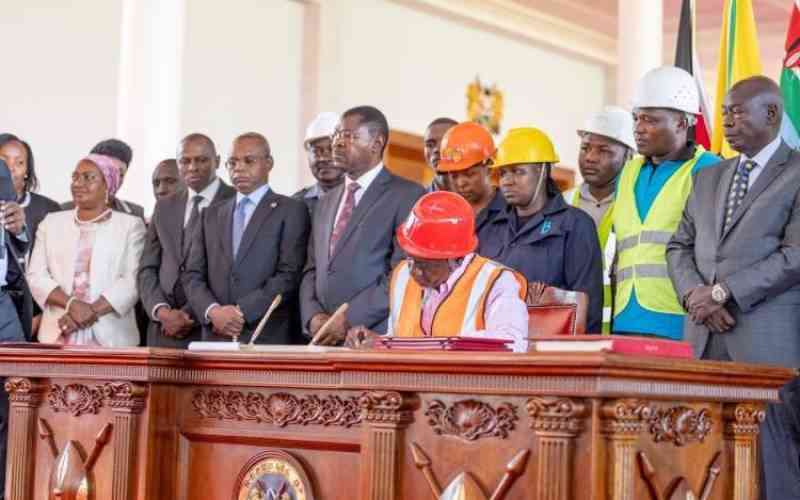
President William Ruto on Tuesday, March 19 assented to the Affordable Housing Bill, at a ceremony held at State House Nairobi.
This now means that Kenyans will from this month continue paying the housing levy with a 1.5 per cent tax from both the employer and the employee.
Speaking during the ceremony, Ruto thanked the courts for challenging the implementation of the Bill adding that some people had been left out and now have been included and will contribute to the fund.
“The law courts asked us to relook into the Bill, and that is commendable, we now have on board people that had been left out. It is key to note that public participation is not a sterile provision in the constitution,” Ruto said.
At the same time, the Head of State promised that the government would consider a Senate report that questioned the 10 per cent mandatory deposit which many Kenyans complained was high.
“During the public participation, most Kenyans said the 10 per cent deposit was high and I am glad the Senate considered and we are going to find a way around it soon under the policy direction that will be given,” he added.
This is after both the National Assembly and the Senate passed the Bill that establishes the four components of Affordable Housing.
The Senate passed it last week, with a raft of amendments, days after it was given a nod by the National Assembly last month.
The High Court had declared the housing levy unconstitutional before the Court of Appeal upheld the decision maintaining that the levy was introduced without a legal framework.
The Bill also defines the role of County Governments in affordable housing and provides for the establishment of County Affordable Housing Committees to advise governors on affordable housing programs within their counties.
Lands Cabinet Secretary Alice Wahome, also present during the signing of the bill, praised the move saying that it will open doors for low-income earners to start earning.
“Currently, over 120,000 young men and women are working on the sites, and we anticipate having 300,000 youths working on the sites once we put in place the balance of the 48,000 units,” she said.